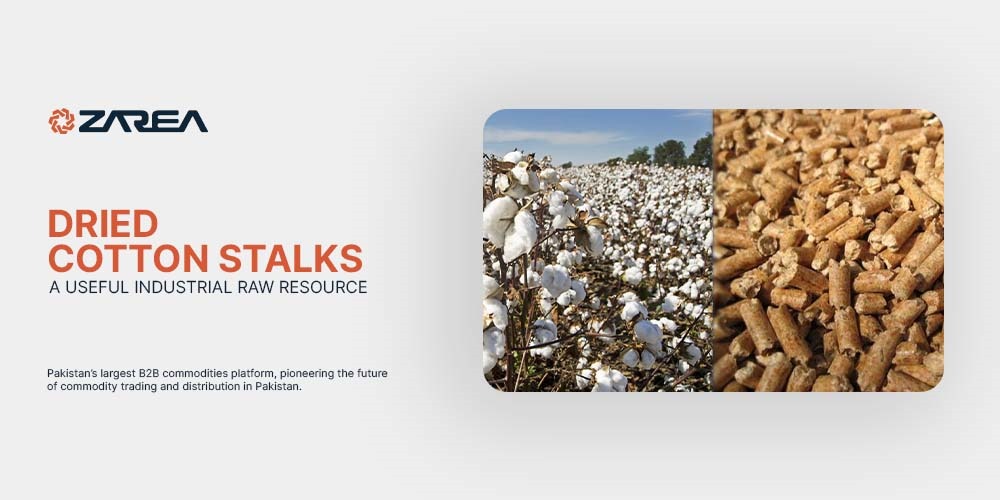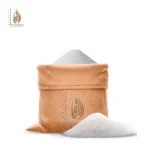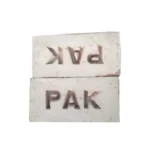Introduction – Dried Cotton Stalks:
Cotton ranks among the most extensively farmed crops worldwide. It’s famous mainly for its fibers, which are utilized in the textile industry. However, besides cotton fiber, the dried stalks of the cotton plant serve as by-products. It also has significant industrial opportunities. Farmers commonly use it as agricultural waste. Multiple industries recognize dried cotton stalks as a significant raw material. They have various applications in order to manufacture paper through producing biofuels. Which makes them an eco-friendly and sustainable resource.
Agricultural waste (dried cotton stalks) presents a major environmental issue. Farmers either discard or burn the cotton stalk, which results in the release of toxic gases. It also produces ash that contaminates the environment. Consequently, researchers evaluated the possibility of using cotton stalk biowaste for its suitability.
Want to Buy Cotton Stalk? Click Here
Composition and Characteristics of Dried Cotton Stalks:
Dried cotton stalks mainly consist of cellulose, hemicellulose, lignin, and a minor portion of minerals also. It has an enhanced lignocellulosic content which makes them suitable for biomass conversional industries. Main features consist of:
- Elevated caloric value: Perfect for generating energy.
- Plentiful presence: An outcome of cotton cultivation.
- Biodegradability: Eco-friendly and renewable.
- Structural integrity: Beneficial in the creation of composite materials.
Industrial Applications of Dried Cotton Stalks:
Production of Biofuels
Bioenergy is a highly promising use for dried cotton stalks. As they can be transformed into biomass briquettes or pellets. Which acts as an alternative to traditional fossil fuels. The high energy content of these stalks makes them a valuable and cost-effective energy source for both households and industries.
Pulp and Paper Sector
As we know, dried cotton stalks have a high cellulose content which makes them a suitable raw material for paper and pulp production. In order to reduce dependence on timber these stalks are a valuable product. As it not only contributes to forest conservation but supports eco-friendly paper manufacturing also.
Manufacturing of Composite Materials
As we know, cotton stalks are a great by-product source for producing particle boards, fiberboards, and many composite materials. The strength and durability of fiber stalks of cotton make them a perfect choice for the furniture, construction, and packaging industries. The composites of cotton stalk can reduce our reliance on conventional wood-based materials.
Mushroom Farming
Cotton stalks as a by-product act as a great medium for mushroom farming. As they offer the necessary nutrients for fungal development. In order to serve as an economical substitute for conventional substrates such as wheat straw.
Natural Fertilizers and Soil Enhancers
Dried cotton stalks serve as organic compost and soil improvement after processing. We can enhance the soil breakdown through adding vital nutrients from these stalks. In order to increase its fertility and decrease its reliance on chemical fertilizers.
Livestock Nourishment and Bedding
After processing these stalks also serve as a nutritional source for animal feed. Additionally, their soft, fibrous nature helps them to make a suitable bedding choice for animals.
Environmental Benefits of Utilizing Dried Cotton Stalks:
The industrial application of dried cotton stalks offers various ecological advantages:
- Minimizes waste build-up: Stops open-field burning, leading to air contamination.
- Encourages eco-friendly industries: Offers a substitute for materials derived from deforestation.
- Reduces greenhouse gas emissions: Energy derived from biomass generates fewer pollutants than fossil fuels.
- Improves soil vitality: Organic treatments boost soil structure and nutrient content.
Challenges and Future Prospects:
The extensive utilization of dried cotton stalks encounters obstacles like ineffective collection techniques. Even with the benefits, insufficient awareness, and inadequate processing facilities make them a poor method. Although advancements in biomass conversion techniques are increasing the focus on sustainable raw materials. Yet it is expected to promote the growth of cotton stalk-based industries in the coming years.
Final Thoughts:
From agricultural waste to becoming a significant industrial resource with various uses dried cotton stalks are a great by-product. Its potential is vast, which ranges from biofuel and paper production to sustainable construction materials. It also promotes research and investment in processing technologies. This can increase their benefits in promoting environmental sustainability and economic development. As compared to conventional raw materials, sectors can move towards greener and cost-effective alternatives.
FAQ’s:
What is a stalk of cotton?
Cotton stalks are produced as a by-product after extracting cotton from the crop plants.
What are the uses of cotton stalk?
In addition to its restricted application as fuel wood, people can use stalks of the cotton for making boards, filter pulp paper, and more. The lack of sufficient raw materials for producing paper pulp and boards is a worldwide issue. They could utilize boxes made from stalks for packing fruits and vegetables.
What is the chemical composition of cotton stalk?
Chemical makeup, structure, and properties of cotton stalk. Like other lignocellulosic materials, cotton stalk mainly consists of cellulose, hemicellulose, and lignin.
Can cows eat cotton stalks?
Mature stalks possess low nutritional value and are coarse and fibrous. Consequently, cows will refrain from eating much of the stalk unless overgrazing occurs in the pasture. The maturity of the plants when cows are allowed to graze will determine the quantity of leaf material available for grazing.
What can you do with cotton stalks?
One of the easiest methods to incorporate cotton into home decor is by leaving complete sprigs whole and arranging them in a vase as you would with a flower. You can decide to leave them alone or incorporate additional plants.

































